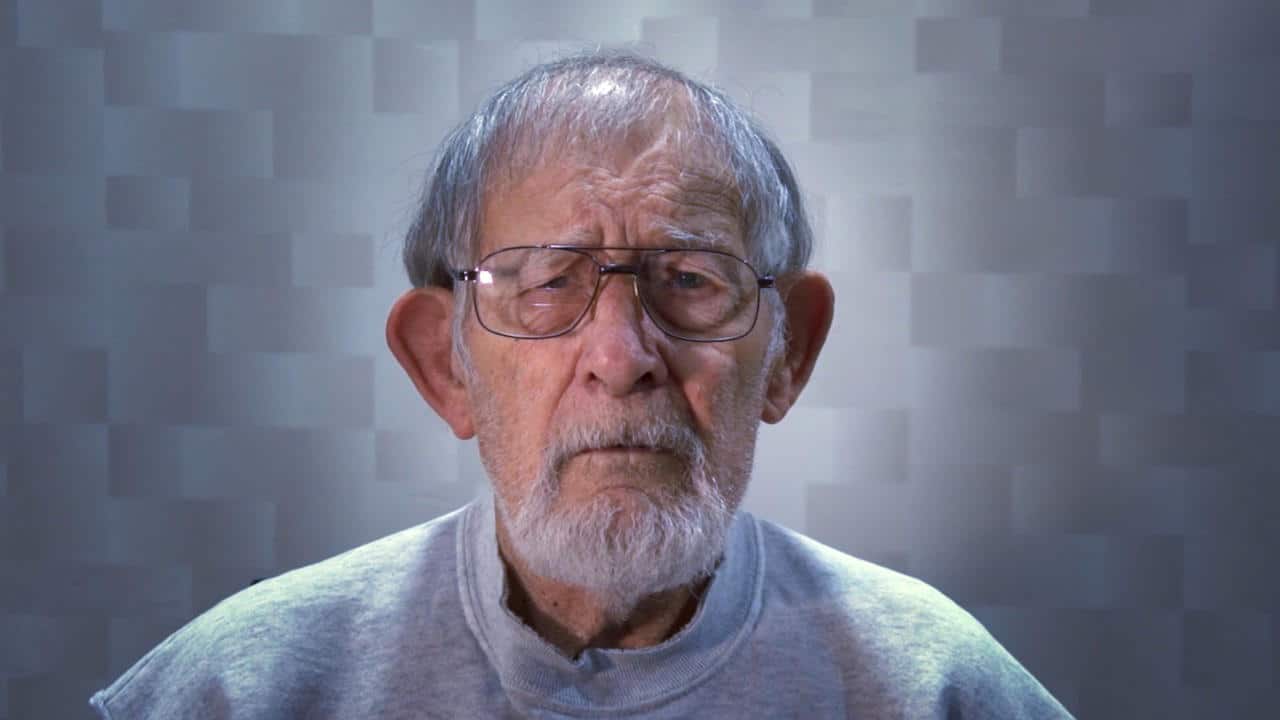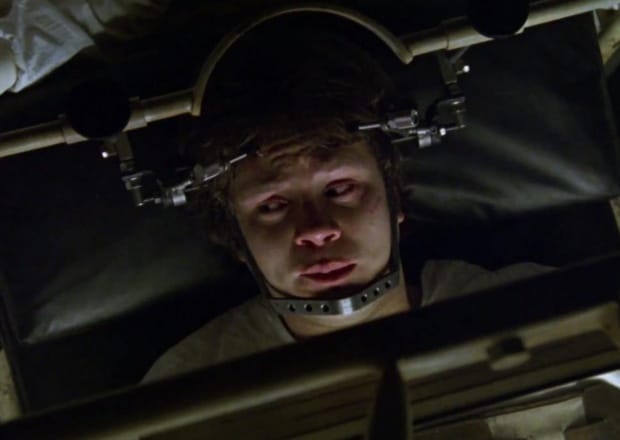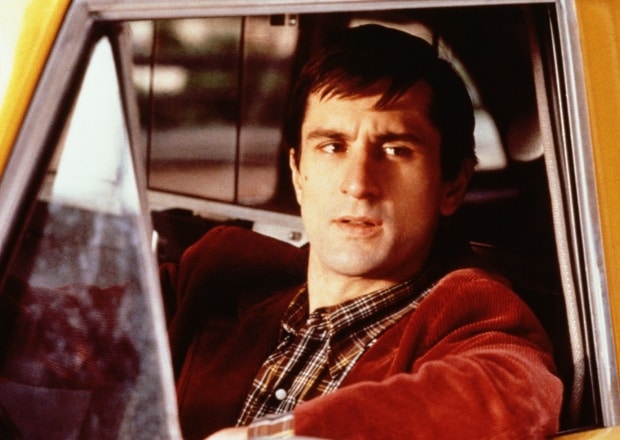De wereld is chaotisch. Om de chaos te bezweren vertellen we verhalen. En het gevoel van chaos en verwarring is het grootst wanneer mensen oorlog en geweld in het gezicht hebben gezien. Dan zijn verhalen het hardste nodig. Zo ongeveer zou je het nieuwe Eye-themaprogramma Shell Shock kunnen samenvatten. De kracht van verhalen is het motto van het rijk gevarieerde pakket films en andere evenementen. De titel verwijst naar naar de psychische klap waarmee soldaten in WO I van het slagveld terugkeerden.
Films die vertellen over getraumatiseerde soldaten, over vluchtelingen en getuigen van onbegrijpelijke tragedies, en hoe die te verwerken. Films waarmee filmmakers op hun eigen, persoonlijke manier het ongrijpbare vorm proberen te geven. “Kunst laat ons thuiskomen in het trauma dat leven heet.” Dat was op de openingsavond van Shell Shock de slotzin van de gesproken column van filosoof Hans Schnitzler. Zo zijn al sinds mensenheugenis verhalen een manier om te zoeken naar structuur en betekenis. Juist films zijn bij uitstek geschikt om directer dan vaak met het woord mogelijk het onzegbare te laten zien. Zo stelde programmeur Anna Abrahams het bij de opening.
Jakkerende honden
Welke filmscènes denk ik dan aan? Bijvoorbeeld de door de straten jakkerende meute honden, die in de verbluffende animatiefilm Waltz with Bashir (2008) de nachtmerrie verbeeldt van Ari Folman, de Israëlische soldaat die filmmaker werd. In de anti-oorlogsfilm J’accuse (1919) van Abel Gance staan de doden van het slagveld van WO I weer op om de levenden aan te klagen. Huiveringwekkend is het labyrint van hallucinaties waarin een veteraan in Jacob’s Ladder (Tim Robbins) verstrikt raakt. Maar het kan ook eenvoudiger.
Programmeurs Abrahams en Ronald Simons hebben geput uit zeer uiteenlopende genres, van experimenteel, cult en virtual reality tot blockbuster en klassieker. De stijl kan rauw en schokkend zijn, maar ook poëtisch of zelfs komisch. Van persoonlijke getuigenissen tot films die bijdragen aan de collectieve verwerking van nationale trauma’s.
Persoonlijke blik
“We hebben de films gekozen vanwege de persoonlijke blik die er uit spreekt. Waarheidsvinding was niet het doel”, stellen Abrahams en Simons in de inleiding bij het programma.
Hoe pak je dat dan aan als filmmaker? Dat zoeken naar houvast in een wereld waarin, zoals het programmaboekje stelt, rust en vrede als een dun laagje over de chaos liggen.
Soms heel eenvoudig. De Syrische fotograaf Issa Touma ontvluchtte in 2012 Aleppo. Nu keert hij terug. In Notes from Aleppo ontmoet hij vrienden en buren en toont hij hoe mensen daar het leven weer oppakken. Bekroond met de World Press Award voor Digital Storytelling.

Ook de uiterst strak en sober vormgegeven korte documentaire The Atomic Soldiers van Morgan Knibbe viel al in de prijzen. Vorig jaar een Gouden Kalf op het Nederlands Film Festival, recent een regieprijs van het Dutch Directors Guild. Tijdens de research voor zijn eerste speelfilm stuitte documentairemaker Knibbe (Those Who Feel the Fire Burning) op de laatste nog levende getuigen van Amerikaanse atoomproeven in de jaren vijftig. Nu doen ze voor de camera – sommigen voor het eerst – hun verhaal. Aangrijpende getuigenissen.
Documentaire kan direct en confronterend zijn, maar fictie hoeft daar niet voor onder te doen. Vaak geeft de ogenschijnlijke omweg van fictie een filmmaker de mogelijkheid om de werkelijkheid juist nog helderder en sprekender uit te tekenen.
Klassiekers
Toen de Franse filmmaker Alain Resnais in 1956 de indrukwekkende documentaire Nuit et Brouillard over de vernietigingskampen van de nazi’s had gemaakt, kreeg hij de vraag om ook zoiets met de atoombom op Hiroshima te doen. Hij aarzelde weer een documentaire te maken. Vond dat hij dat als niet-Japanner niet moest doen. Hij gooide het over een heel andere boeg en benaderde Marguerite Duras voor een scenario. Zo ontstond Hiroshima mon amour (1958), over een Franse actrice die in Hiroshima een korte affaire beleeft met een Japanner. Om te spreken over liefde en dood, oorlog en vrede creëerden Duras en Resnais een gedurfde stijl waarin de filmtaal nieuwe wegen zoekt. Zo wordt zichtbaar hoe de verliefden allebei hun eigen littekens uit een voorbije oorlog meedragen. Hiroshima mon amour werd een grote klassieker die het zeker waard is om nog eens te gaan zien.
De destijds zeer succesvolle actiefilm First Blood (1982) van Ted Kotcheff is een volstrekte tegenpool. Geen poëtische experimenten, maar een rechtlijnig spektakel met Sylvester Stallone als de zich miskend voelende Vietnam-veteraan. Terug in Amerika bindt hij de strijd aan met de politiemacht van een klein stadje. Wat op het eerste gezicht slechts populair amusement lijkt, speelde destijds wel degelijk in op breed gevoelde frustraties na de voor veel Amerikanen vernederend afgelopen oorlog in Vietnam.
Traumaverwerking
Een vergelijkbare combinatie van nationaal en persoonlijk trauma drijft ook het veel complexere Taxi Driver (1976), volgens velen Martin Scorsese’s beste film. Met Robert DeNiro als de doorgedraaide Vietnam-veteraan Travis Bickle, die als taxichauffeur New York doorkruist en besluit met een bloedige actie de stad te zuiveren van gespuis. Een rauwe en bij vlagen hallucinerende verbeelding vanuit het standpunt van de zich wrekende engel wanende Bickle. Tegelijk ook een meedogenloos raak tijdsbeeld. Een tijdsbeeld dat, vermoed ik, voor de huidige kijker ook associaties kan oproepen met als terrorisme bestempelde gewelddaden. Vandaar dat ik Taxi Driver zeker nog eens wil gaan zien.
En als het gaat om het zoeken naar nieuwe manieren om knagende trauma’s te verwerken denken we ook aan het eerder genoemde Waltz with Bashir. Worstelend met zijn eigen oorlogservaringen als Israëlisch soldaat had Ari Folman de geniale inval om er een animatiefilm van te maken. Zo hoefde hij geen acteurs een valse versie van zichzelf te laten spelen, kon hij de beperkingen van een documentaire negeren en toch alles precies zo laten zien zoals het in zijn hoofd zat. Wie onlangs het stilistisch verwante Another Day of Life zag zal zeker iets herkennen.
Live muziek
Het totale programma omvat ruim veertig films, lezingen en andere evenementen. Van klassiekers uit de archieven, zoals het nieuw gerestaureerde en met live muziek vertoonde J’accuse, tot Sanne Vogels gloednieuwe telefilm Zomer zonder mama, over een meisje dat haar moeder als oorlogscorrespondent naar Syrië ziet vertrekken. Er zijn ex-soldaten die hun ervaringen in een soort filmtheater naspelen in Theatre of War. Ook de ongewone documentaire The Act of Killing hanteert een soortgelijke formule. Het muziektheater So it Goes is gebaseerd op Kurt Vonnegut’s beroemde boek Slaughterhouse-Five over zijn ervaringen als krijgsgevangenen in de Tweede Wereldoorlog. Het zijn zomaar een paar grepen uit het aanbod.
Shell Shock vindt plaats in Eye Filmmuseum. Het is op 22 maart van start gegaan en duurt nog tot 22 mei. Op 20 mei is er een bijzondere afronding met een diner aan het water waar u samen met een asielzoeker aan tafel gaat. U betaalt voor twee.


